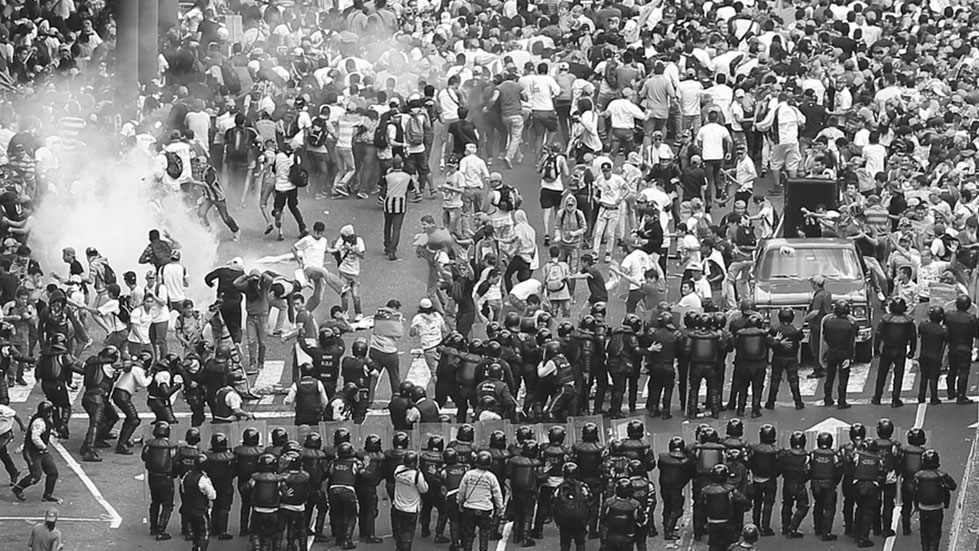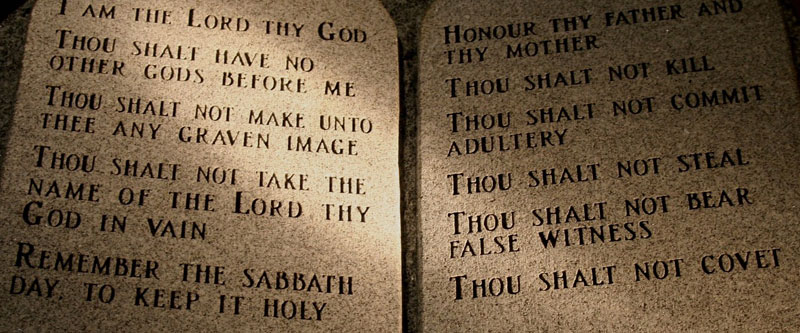
“Therefore my appeal is that the PCA re-focus on the gospel ministry of the church and make that its declaration rather than repeatedly making statements on race and its related issues.”
Moving Past the Issue
This series began by addressing three diagnostic questions as to where the Presbyterian Church in America (PCA) is in relation to racial sin. It is necessary to ask these due to considerable attention given to the issue of race in the denomination over the last number of years. These questions are:
- Has the PCA made a clear and thorough declaration on the sin of racism?
- Are there any new or extraordinary manifestation of this sin rearing its head in society or the PCA that would warrant additional teaching from God’s word?
- Is the PCA neglecting shepherding of private or public unrepentant sins in this regard that should be addressed by church courts?
The first question is answered here; the second here; the third here. By way of summary, the PCA’s condemnation of racial sin is abundantly clear. There are no circumstances that justify revisiting previous statements. And as there are no appeals or complaints regarding racial sin moving up through the courts of the church, it is fair to assume that such sins are being effectively handled at a local level. For these reasons, the appeal of this series is that the PCA re-focus on the gospel ministry of the church and make that its declaration rather than repeatedly making statements on race and its related issues.
Other have spoken of the dangers of “mission creep” in the church. In other words, the church loses sight of its main gospel objective and thereby becomes ineffective. Is the focus on race “mission creep”? In the case of the PCA it certainly is. This sin has been clarified and condemned, and it is not controversial in the PCA. However, the PCA’s continued discussion on alleged acts of racism in or outside the church, outside of the actions of the discipline of the church, fosters an “us” and “them” mentality in the church based on race. Yet the church is one body (Rom. 12:4-5; 1 Cor. 12:20; Eph. 4:4; Col. 3:15).
At the last General Assembly (GA) there was talk of majority and minority cultures, designations of “you” and “us” along ethnic lines, and justifications for public repentance in the PCA based on news reports from secular outlets. The language of majority/minority culture is foreign to God’s word. The Bible does not recognize the validity of “you” and “us” statements of difference in the body of Christ. These statements are derived from the philosophy of man.
In Fault Lines, Voddie Baucham critiques the social justice movement, especially as it appears in the church. In it he quotes a definition of Critical Race Theory (CRT) from the pen of one of its proponents: “CRT recognizes that racism is engrained in the fabric and system of the American society. The individual racist need not exist to note that institutional racism is pervasive in the dominant culture.”[1] Those are exactly the sentiments communicated through the language of majority/minority culture, or the “you” and “us” statements made during floor debate. Intentional or not, these terms reflect CRT and imports them into the PCA.
The notions of majority and minority culture seem to be driving the distinctions drawn in the PCA. However, when the Bible deals with differences in the church, they are not based on ethnicity as much as covenantal standing: Jew and Gentile. Certainly, ethnicity cannot be separated from that discussion, but it is accidental. The biblical point is always the inclusion of gentiles into the family of Abraham. But, for example, discussing Asians as a minority culture in a mostly Caucasian denomination divides up the Gentiles. The PCA is populated, by and large, by Gentiles. There are Gentiles with a variety of skin colors, but the PCA is mostly Gentile. All of the Gentiles have been grafted into the family of Abraham, have become the spiritual Israel. In Scripture there is no talk of a majority vs. minority culture. There are only sons of Abraham by faith. To speak of majority and minority cultures in the church is to deny 1 Cor. 12:12-13: “For just as the body is one and has many members, and all the members of the body, though many, are one body, so it is with Christ. For in one Spirit we were all baptized into one body—Jews or Greeks, slaves or free—and all were made to drink of one Spirit.” The PCA must stop speaking of and championing the different ethnic varieties of Gentiles in the body of Christ, and return to being ambassadors of the whole of the Bride of Christ. So how is that done?
Color Blindness
First, the PCA must become “color blind.” Martin Luther King Jr. famously said, “I have a dream that my four little children will one day live in a nation where they will not be judged by the color of their skin but by the content of their character.” Morgan Freeman (by no means a conservative, reformed theologian as far as I know) when asked about racial division in an interview with Mike Wallace stated the solution to racial difference was to stop talking about it. Wallace asked him, “How are we going to get rid of racism until…” Mr. Freeman cuts him off and says, “Stop talking about it. I’m going to stop calling you a white man, and I’m going to ask you to stop calling me a black man. I know you as Mike Wallace. You know me as Morgan Freeman.”[2] In other words, treat each other as people. This sentiment is even more compelling for Christians who have a theological reason for it. The church should treat anyone according to the biblical understanding of man as created in the image of God, no matter where he was born or what his status is (James 2:1-4). But I have been told that color blindness is not possible. I disagree. It is possible, and it should be pursued.
My father grew up in Charlotte, NC during the 40’s, 50’s, and 60’s. He grew up with segregated water fountains. Fast forward to the 70’s when he moved his family to the Netherlands. Our family lived in a “diverse” neighborhood, and one of my friends was Jairaj. His skin was not pasty white like mine. In the course of our “friendship”, Jairaj stole every penny from my piggy bank. However, while walking me through this betrayal my father never once mentioned ethnicity. My father explained Jairaj was not to be trusted because he was a thief, and never mentioned that he was East Indian. His ethnicity had nothing to do with it. In one generation, and through the gospel, my father had learned to look at character and not color. That change transformed his family into a place where Christian friends from Australia, South Korea, Japan, Ghana, the Netherlands, Brazil, the Dominican Republic, Haiti, Trinidad and Tobago, South Africa, Mexico and other places would regularly be welcomed. There was no discussion about majority or minority culture. Sure, there were some things they did that we thought was weird, just as some of the things we did seemed weird to them. Certainly there were cultural differences, but the thing that united was a common love for God in Christ and a desire to worship Him. That is where the PCA must land.
Living as One Body
Second, the PCA must intentionally and uncompromisingly live as one body. There are different members with different functions, but they make up one body. Unity is lived out through word and deed. That is the reason why the language of majority or minority cultures is so damaging. The task of the body of Christ is with one voice to bear witness to His works of creation and redemption. That work is accomplished through people fulfilling different tasks as hands and feet of the body. However, the discussion is not around what color the hands and feet may be. It is rather to mobilize all the different parts of the body to be faithful in carrying out the Great Commission of evangelizing and discipling.
At the 48th General Assembly, I spoke to a brother about overture 45, which sought the flourishing of Asian Americans. There was a significant difference in opinion about the value of that request from Metro Atlanta Presbytery. In the conversation he stressed the pain of a minority culture (in this case Asian Americans) living in a majority culture. At the time I didn’t have time to process through what he said, but the more I thought about it, the more the terminology bothered me.
The point is not that there is no pain in the Asian-American community. I would expect there is. The problem is the shift in discussing pain in terms of ethnicity rather than the sin and misery that is in the world through the fall. There should be no surprise that there is pain among Asian Americans, just as there is in black, white community, and Indian communities. All communities, also those marked by racial diversity, suffer pain because all communities are affected by sin. Sin causes pain and all face the pain of sin in their day because they live after the fall. The body of Christ is unified as it realizes that all have been rescued from eternal pain through the work of Christ as a substitute on the cross. And this truth must be championed.
Commitment to Truth
Lastly, the PCA must be committed to biblical truth as its unifying principle. Instead of making statements about the pain of one ethnic group over against another, the task of the church is to speak primarily of the singular solution to that pain: the Lord Jesus X. The world’s comfort from pain is found in Him. Unity is not found in easy-to-make declarations. They cost very little, especially when there is as much agreement on the topic as there is in the PCA. But sharing the gospel in the world, practicing hospitality generously, and encouraging each other toward love and good works in the church is the hard work of building unity and love in the church. The unity of the human race is based in its original creation (Genesis 1:28), and the Gospel is the message that restores the unity that has been lost by sin.[3]
So please, my brothers, let us be done with discussions on race at the General Assembly. If there are sins of that nature in our denomination, they should be addressed through formal process in the courts. The PCA cannot allow the hot topics of the world to become the cause for “mission creep.” Instead the PCA must re-focus on the gospel ministry of the church and make that its declaration rather than repeatedly making statements on race and its related issues.
It is my prayer this appeal will be received in the brotherly spirit in which it was written. It is meant to be an appeal. I pray that the Lord will use it for building the unity of His body.

Geoff Gleason is pastor of Cliffwood Presbyterian Church in Augusta, Georgia. His passion is to see the people of God grow in their faith, and those who are lost become numbered among the faithful. He has been married for 28 years and, usually, is the joyful father of 11 children ranging in age from 28 to 6, and two grandsons.
[1] Voddie Baucham, Fault Lines, (Salem Books, Washington, D.C.: 2021), p. xv.
[2] YouTube, Morgan Freeman on Black History Month, n.d. (accessed August 2, 2021), https://youtu.be/GeixtYS-P3s.
[3] Pastoral Letter on Racism, p. 6.










